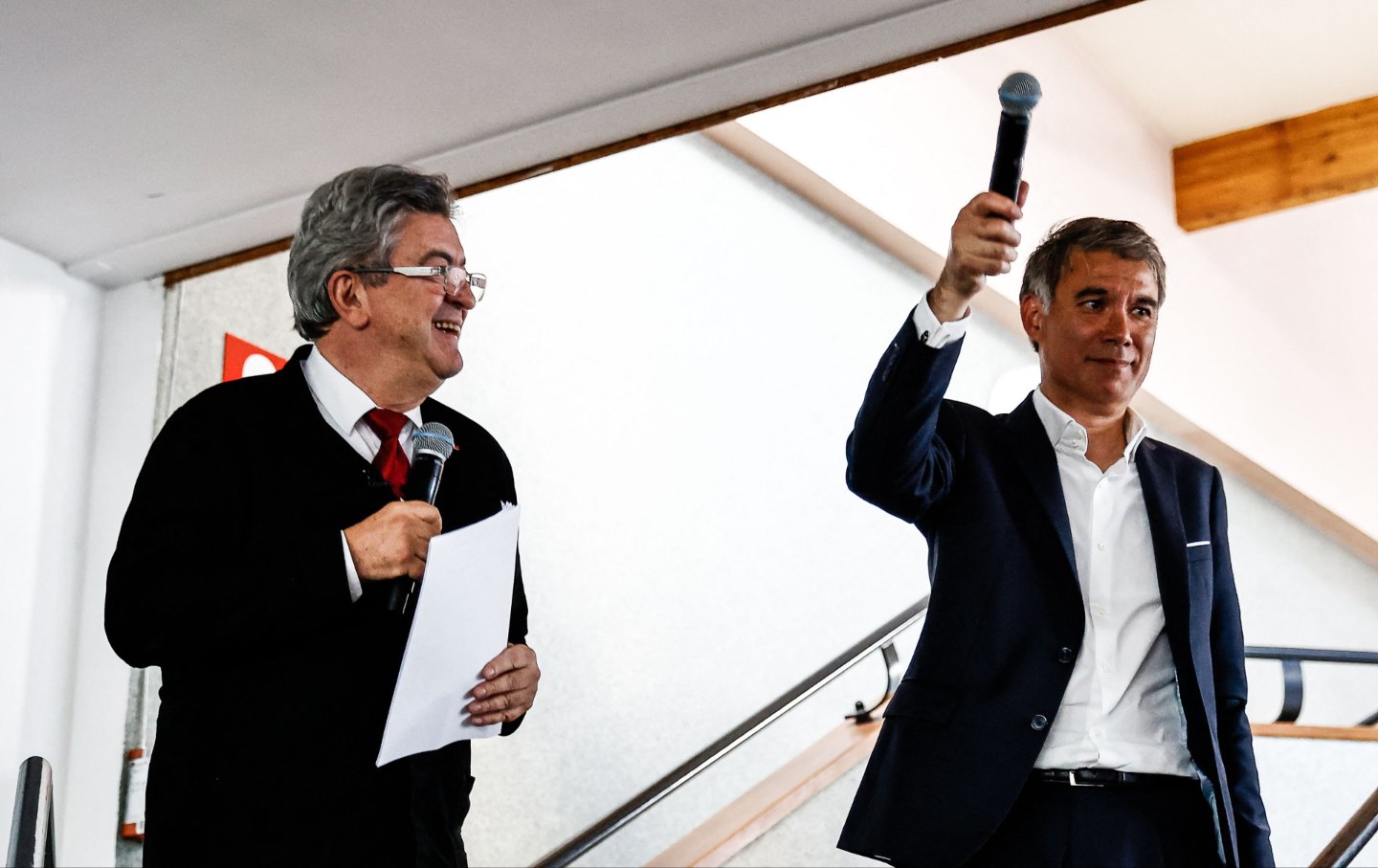The Crisis Engulfing the French Left

```html
Fractured Front: The Uncertain Future of France's Left Alliance
A Coalition on Life Support
Remember the heartwarming meme from last summer? A cascade of hearts proclaiming, "On s’engueulera plus tard" – "We'll argue later." A playful nudge to France's leftist alliance to set aside their squabbles and unite against common adversaries. Today, that sentiment feels less like a lighthearted joke and more like a somber prophecy.
Seven months after a surprising legislative victory that blocked the far-right's path to power, the New Popular Front (NFP) is teetering on the edge of collapse. This coalition, composed of France Unbowed (LFI), the Socialist Party, the Greens, and the Communist Party, is facing internal strife so severe that Green MP Sandrine Rousseau describes the alliance as "on life support."
The Fault Lines Emerge
The cracks started showing early on. President Macron’s refusal to appoint a leftist prime minister, opting instead for conservative and center-right figures, complicated the NFP’s efforts to establish a unified opposition strategy. Disagreements escalated into public spats, and electoral losses piled up. First, a special legislative election slipped through their fingers, then a mayoral seat in a traditionally communist suburb.
The biggest blow, however, came with the government's budget. Prime Minister Bayrou forced the legislation through parliament using Article 49.3, a constitutional maneuver that bypasses standard voting procedures. While the NFP had united to oust the previous prime minister using a no-confidence motion triggered by the same tactic, this time the alliance fractured. The Socialists refused to support the motion, drawing accusations of betrayal from LFI.
The Socialist Dilemma: Pragmatism or Power Play?
The Socialist Party's stance is complex. Officially, they cite the risks of instability caused by prolonged budget negotiations. Socialist MP Arthur Delaporte highlighted concessions won from the right, such as reduced spending cuts and increased hospital funding. "If the budget was voted down," Delaporte argued, "we’d have to go through another negotiation cycle… and it could be even worse."
However, political science professor Remi Lefebvre suggests internal party politics are at play. He argues the refusal to back the no-confidence motion is a strategic move to weaken the party's right wing and former president François Hollande, who opposes the alliance with LFI.
"It sounds contradictory," Lefebvre explains, "but it's precisely to weaken the right-wing of the Socialist Party… that the party didn't vote the motion of no-confidence.”
The Mélenchon Factor: A Divided Left
Further complicating matters is the internal dynamics within LFI, the largest party in the NFP. Many believe Jean-Luc Mélenchon's presidential ambitions are a driving force behind the coalition's instability. Raquel Garrido, a founding member of LFI and former member of Mélenchon's inner circle, believes Mélenchon regretted the creation of the NUPES (the precursor to the NFP) and actively sought to dismantle it.
Mélenchon’s defense of Adrien Quatennens, an LFI MP accused of domestic violence, further solidified his control over the party and exacerbated existing divisions. Subsequent disagreements over parliamentary strategy during the pension reform battle and the party's stance on the Israeli-Palestinian conflict widened the rift between LFI and its coalition partners.
A Glimmer of Hope? Or a Final Curtain Call?
Despite the turmoil, the NFP managed to reform after Macron dissolved the National Assembly in June 2024. The threat of electoral losses and the loss of public funding forced the parties back to the negotiating table. Yet, underlying tensions remain, casting a dark shadow over the future of the left.
With Macron potentially dissolving the assembly again in 2025, the left faces the daunting prospect of severe electoral setbacks. And if the presidential election comes first in 2027, polls are even more discouraging, with Mélenchon trailing far behind potential Macronist candidates and Marine Le Pen.
The question remains: can France's fractured left find a way to bridge its divides and present a united front? Or will internal strife pave the way for the rise of the far right? As Green MP Sandrine Rousseau puts it: “With the far right on the rise, the question we’re facing is are we going to be the stupidest left in the world or not? Or are we actually going to be one the most intelligent lefts in the world?”